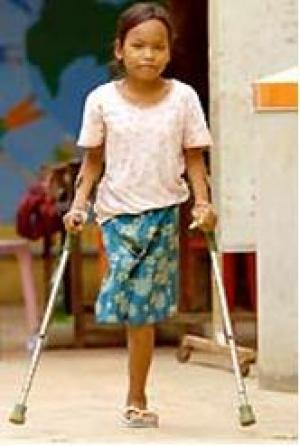This year the Holy Family General Leadership Team, through Marian Murcia, became a member of the European Council of Religious Leaders, and of Religions for Peace at the international level. (cf. Letter to the Institute, March 2010 page 2 para. 4)
The object of this small effort, the "JPIC email" - is to share with you something that touches on JPIC in our world. To raise awareness; to increase solidarity; to hold the situation or the theme in our prayer... to add to the contribution to JPIC that members of our Family are already making all over the world... Small efforts, yes, but "In a family, if there is one person who practices mindfulness, the entire family will be more mindful. Because of the presence of one member who lives in mindfulness, the entire family is reminded to live in mindfulness. If in one class, one student lives in mindfulness, the entire class is influenced" (Thich Nhat Hanh) This same principle applies to 'mindfulness' of the cry for justice coming our world, of the woundedness of our planet, of our interconnectedness with the whole universe... and 'one member' can also mean one community, one unit, one group of Associates... This message will hopefully help to raise awareness in the Holy Family of the evil of cluster Bombs, and the need for their eradication...
JPIC |
SUPPORT FOR THE CAMPAIGN AGAINST CLUSTER MUNITIONS
This year the Holy Family In fidelity to this commitment, these organizations have chosen to prioritize collaboration with Cluster Munitions Coalition, (CMC) an international civil society campaign working to eradicate cluster munitions. What are cluster munitions or cluster bombs? Cluster munitions are prohibited for those nations that ratify the Convention on Cluster Munitions, adopted in Dublin, Ireland in May 2008. The Convention entered into force and became binding international law on FIRST MEETING OF SIGNATORIES IMMINENT The first meeting of the States which have signed this Convention on Cluster Munitions will take place from 9 to 12 November in States that have ratified the Convention will need to take a variety of concrete steps to implement its obligations. These include the adoption of domestic law and regulations to ensure implementation of the Convention at the national level. It entails the identification of resources for clearance, stockpile destruction, victim assistance and international cooperation to fulfil the treaty's objectives. States with cluster munitions stocks will need to prepare timelines for completion of stockpile destruction within an eight year period and begin the process of destruction. States affected by unexploded submunitions will need to put in place specific plans for fulfilling the Convention’s time-bound clearance obligations and its far-reaching commitments to victims and their communities. We invite you to hold yourselves in solidarity with this historic meeting, by informing others about it, and by joining with all those from other creeds and religious traditions who work and pray for peace. May our God open our eyes and our hearts, may He show us how to work together and "commit ourselves with courage and daring to seek… conditions of life that ensure dignity for all" (C.C.) That is the path that will surely lead to peace…  Cluster munitions, cluster bombs or sub-munitions are air-dropped or ground-launched explosive weapons that eject smaller submunitions: a cluster of "bomblets". Because cluster bombs release many small bomblets over a wide area they pose risks to civilians both during attacks and afterwards. During attacks the weapons are prone to indiscriminate effects, especially in populated areas. Unexploded bomblets can kill or maim civilians long after a conflict has ended. Unexploded submunitions are costly to locate and remove.
Cluster munitions, cluster bombs or sub-munitions are air-dropped or ground-launched explosive weapons that eject smaller submunitions: a cluster of "bomblets". Because cluster bombs release many small bomblets over a wide area they pose risks to civilians both during attacks and afterwards. During attacks the weapons are prone to indiscriminate effects, especially in populated areas. Unexploded bomblets can kill or maim civilians long after a conflict has ended. Unexploded submunitions are costly to locate and remove.
What is the objective of the Convention on Cluster Munitions?
The Convention will end the use and address the effects of a weapon that has killed and maimed civilians for decades. Their use in conflicts over the past 50 years has demonstrated that cluster munitions are inaccurate and unreliable weapons that continue killing and maiming long after they are used. The Convention comprehensively responds to this humanitarian problem by prohibiting the use, production, stockpiling and transfer of cluster munitions as well as committing States to clearance of contaminated areas, destruction of existing stockpiles and to assistance to individual victims and their communities. The Convention also establishes an international humanitarian law norm that must be taken into account even by States that have not yet adhered to it. Its existence has already begun to affect their policies and practice..
What are the next steps for States that have ratified the Convention?
Collectively, the States Parties to the Convention on Cluster Munitions must now begin working together both formally and informally to promote adherence among States not yet party to the Convention, to develop reporting tools and to agree on a program of meetings to promote and monitor implementation. They will also need to mobilise resources to assist victims and affected countries in a timely manner. Though less dramatic than negotiating or ratifying the Convention it is these steps that will ensure that the decades of suffering caused by cluster munitions is ended and that future generations are spared.
